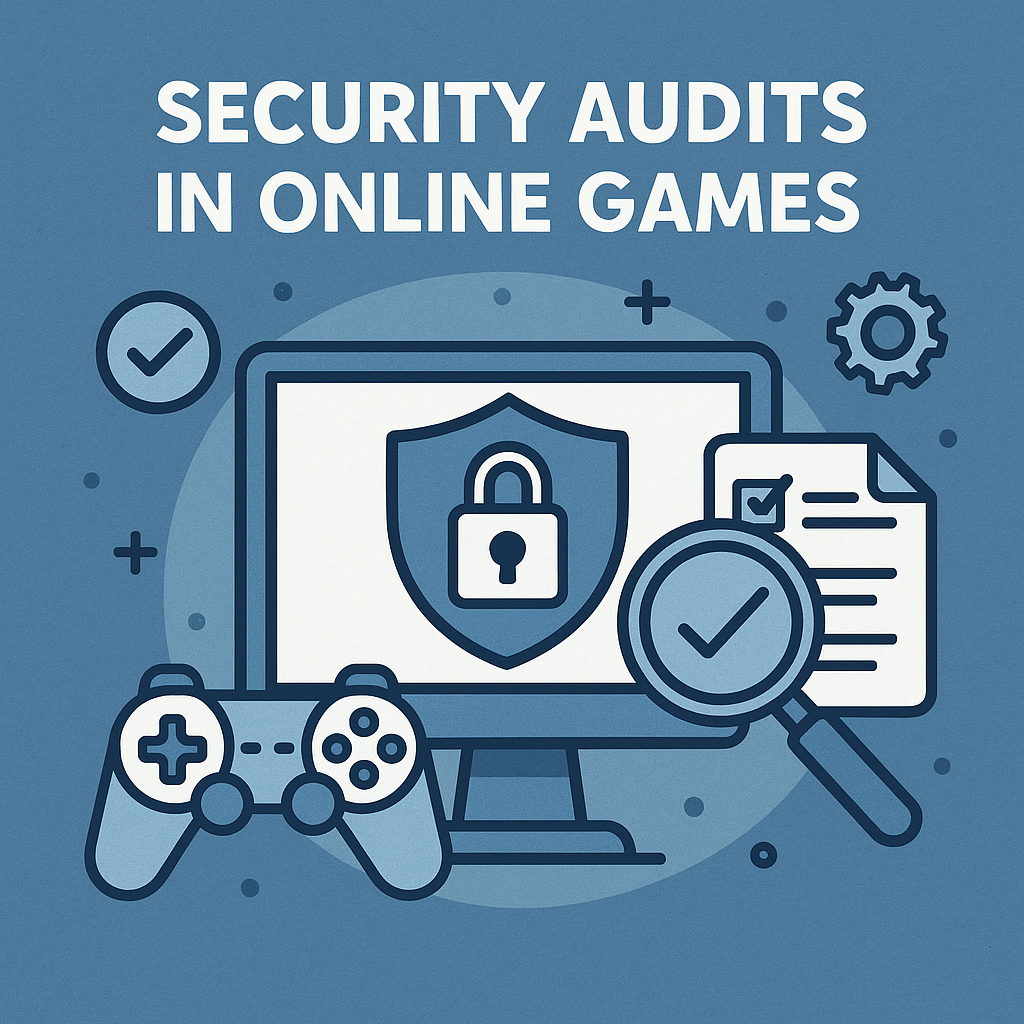Online games operate in an environment where user trust, data integrity, and fair competition are constantly at risk. With thousands—or even millions—of players interacting in real time, the potential for cheating and hacking becomes a major concern. Regular security audits in online games play a crucial role in identifying vulnerabilities and enforcing a secure, fair experience for all participants.
What Are Security Audits in Online Games?
A security audit in the context of online gaming refers to a thorough examination of game code, server infrastructure, databases, and in-game transaction systems to uncover potential security flaws. These audits are conducted periodically by internal teams or third-party cybersecurity specialists.
Audits may include penetration testing, traffic monitoring, data encryption reviews, and validation of anti-cheat mechanisms. The goal is not just to detect current threats but also to prevent future exploitation by identifying weak points before they can be abused.
Why Hackers and Cheaters Target Online Games
Before understanding the value of audits, it’s essential to know why online games are such high-value targets. Hackers and cheaters often aim to:
- Gain competitive advantages (e.g., aimbots, wallhacks, speed hacks)
- Manipulate in-game currency or assets
- Leak sensitive user data
- Take down servers through DDoS attacks
- Inject malicious scripts to compromise gameplay
Monetization models like microtransactions and NFT-based economies have only increased the stakes, making security even more critical.
How Security Audits in Online Games Prevent Cheating
Cheating often stems from flaws in client-server communication or weak anti-cheat systems. Regular audits help detect these flaws and patch them quickly. For example:
- Code Obfuscation Review: Prevents reverse engineering of game files
- Real-Time Packet Inspection: Identifies abnormal data exchange that may indicate cheat engine use
- Integrity Checks: Ensures the client files match the authorized server versions
In competitive eSports, even a minor exploit can ruin the integrity of entire tournaments. That’s why security audits are vital to maintain the reputation of both game publishers and professional events.
Security Audits in Online Games and Hacking Prevention
While cheating affects fairness, hacking can threaten the very infrastructure of online games. Regular audits help prevent hacking in several critical ways:
- Server Penetration Testing: Mimics real-world cyberattacks to test how secure game servers are
- Access Control Review: Ensures that sensitive systems are only accessible to authorized personnel
- Database Hardening: Protects user data and in-game transaction logs from SQL injection, ransomware, or unauthorized scraping
- Third-Party Plugin Review: Evaluates any third-party SDKs for hidden vulnerabilities
By performing these activities routinely, companies can dramatically reduce the risk of large-scale breaches or system takeovers.
Role of AI and Automation in Security Audits
Many gaming companies now incorporate automated tools and AI-driven analytics during audits. These tools continuously scan for unusual player behavior, unauthorized access attempts, or even anomalies in player win rates that suggest cheating.
For instance, behavior-based models may alert developers if a user suddenly starts performing abnormally well, prompting further investigation. This combination of human expertise and machine learning ensures more comprehensive audit outcomes.
Industry Examples of Audit Impact
Games like Fortnite, PUBG, and Valorant have undergone multiple rounds of security hardening following high-profile cheating incidents. Riot Games, for example, has invested in kernel-level anti-cheat software backed by regular third-party audits.
Smaller studios also benefit from audits. Indie games exposed to cross-platform cheating tools can regain fair play by implementing audit findings such as secure matchmaking protocols and encrypted scoreboards.
Regulatory and Legal Requirements
As online games handle financial transactions and store user data, security audits are becoming a legal requirement in many jurisdictions. Compliance with regulations like GDPR, PCI DSS, or COPPA often involves demonstrating strong cyber hygiene—something only achievable through regular audits.
Failure to comply can lead to penalties, lawsuits, and permanent damage to brand reputation. That’s why even non-competitive games are prioritizing cybersecurity as part of product lifecycle management.
Benefits Beyond Security
Security audits don’t just prevent cheating and hacking—they also improve overall system performance. Bottlenecks in server response times, lag-inducing scripts, or inefficient APIs are often uncovered during audits. Fixing these enhances the user experience and reduces churn.
Additionally, when players know a game has undergone security auditing, they’re more likely to trust the platform, invest in premium content, and stay loyal to the community.
Final Thoughts on Security Audits in Online Games
Regular security audits in online games are no longer optional. They are essential for identifying vulnerabilities, preventing cheating, and protecting against hacking attempts that could jeopardize player experience and developer credibility. With rising stakes in online gameplay and eSports, audits have become a foundational element of every secure gaming ecosystem.



